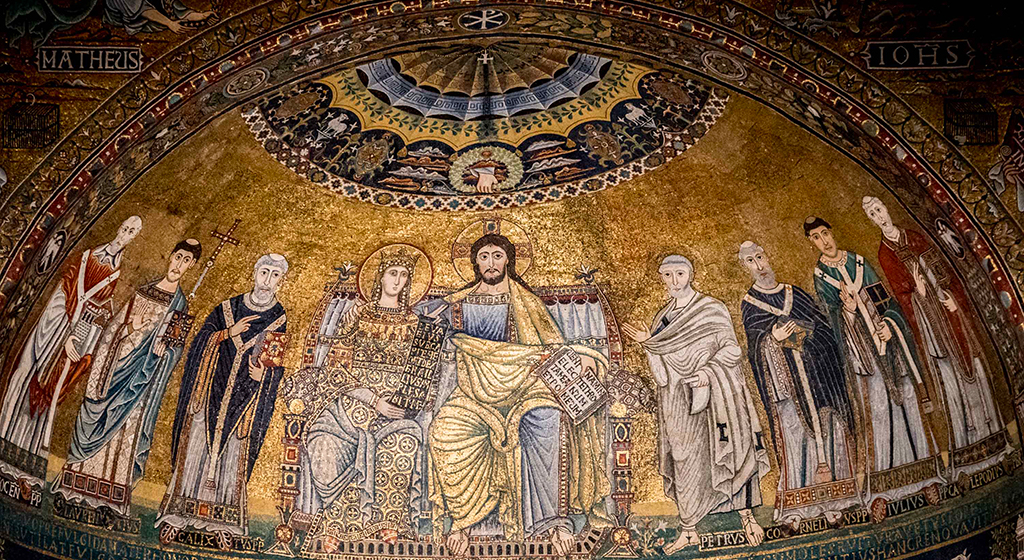Memory of the Church
Reading of the Word of God
Alleluia, alleluia, alleluia
I am the good shepherd,
my sheep listen to my voice,
and they become
one flock and one fold.
.
Alleluia, alleluia, alleluia
Luke 15,1-10
The tax collectors and sinners, however, were all crowding round to listen to him, and the Pharisees and scribes complained saying, 'This man welcomes sinners and eats with them.' So he told them this parable: 'Which one of you with a hundred sheep, if he lost one, would fail to leave the ninety-nine in the desert and go after the missing one till he found it? And when he found it, would he not joyfully take it on his shoulders and then, when he got home, call together his friends and neighbours, saying to them, "Rejoice with me, I have found my sheep that was lost." In the same way, I tell you, there will be more rejoicing in heaven over one sinner repenting than over ninety-nine upright people who have no need of repentance. 'Or again, what woman with ten drachmas would not, if she lost one, light a lamp and sweep out the house and search thoroughly till she found it? And then, when she had found it, call together her friends and neighbours, saying to them, "Rejoice with me, I have found the drachma I lost." In the same way, I tell you, there is rejoicing among the angels of God over one repentant sinner.'
Alleluia, alleluia, alleluia
I give you a new commandment,
that you love one another.
Alleluia, alleluia, alleluia
Chapter 15 of Luke, which begins with this section, is devoted to the merciful attitude of God. These first ten verses narrate two parables about mercy: the lost sheep and the lost coin. In the first, Jesus presents the Father as a shepherd who lost one of his ninety-nine sheep. The shepherd leaves the ninety-nine in the fold and starts to search for the lost one. It could be said that there is a law of mercy that gives the sinner a right: the right to be helped before those who are just. We are in front of the true revolution brought about by the Gospel. And in a world where meritocracy is presented as the ideal of social organisation - and there is no doubt that it must be taken into account - the Gospel presents the paradoxicality of the mystery of mercy and forgiveness. In the second parable, the Father is imagined as a woman who has lost a coin and starts looking for it until she finds it, thus asserting once again God's privileged love for little ones. And both, the shepherd and the woman, after having found the lost sheep and the coin, call their neighbours to celebrate. God wants not the death of sinners, but their conversion - that is, that they change their lives and turn to Him. This demands from disciples a merciful heart and a capacity to love as God does. Jesus concludes, "There will be more joy in heaven over one sinner who repents." This is the feast God enjoys most, and for this reason, he starts searching - even begging - for love. He does this even with us: let us allow Him to find us.
